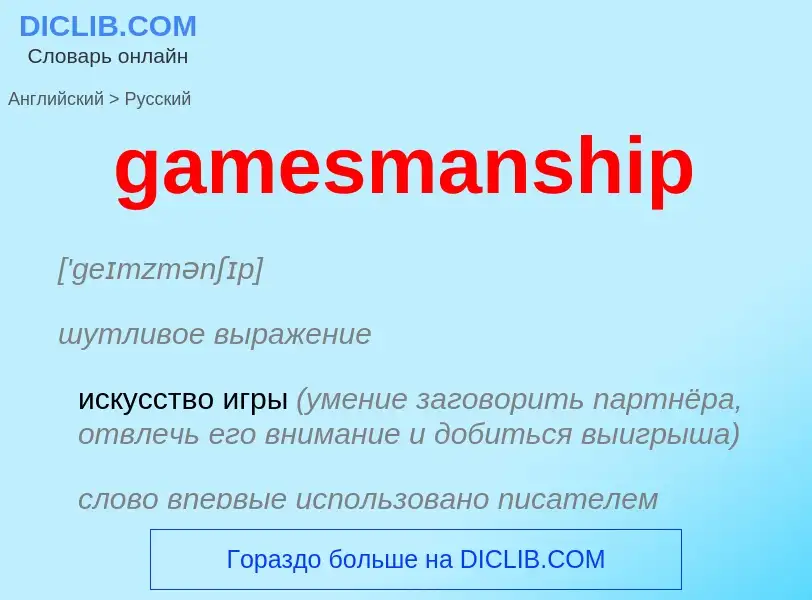Traduction et analyse de mots par intelligence artificielle ChatGPT
Sur cette page, vous pouvez obtenir une analyse détaillée d'un mot ou d'une phrase, réalisée à l'aide de la meilleure technologie d'intelligence artificielle à ce jour:
- comment le mot est utilisé
- fréquence d'utilisation
- il est utilisé plus souvent dans le discours oral ou écrit
- options de traduction de mots
- exemples d'utilisation (plusieurs phrases avec traduction)
- étymologie
gamesmanship - traduction vers Anglais
['geɪmzmənʃɪp]
шутливое выражение
искусство игры (умение заговорить партнёра, отвлечь его внимание и добиться выигрыша)
слово впервые использовано писателем С.Поттером [Stephen Potter] в названии книги "Искусство игры" ["The Theory and Practice of Gamesmanship"], вышедшей в 1947
существительное
общая лексика
искусство игры, искусство выигрывать
шутливое выражение
искусство игры
искусство выигрывать (иногда сомнительными, хотя и незапрещёнными приемами)
беспроигрышная игра (путём отвлечения внимания противника)
Définition
Wikipédia
Gamesmanship is the use of dubious (although not technically illegal) methods to win or gain a serious advantage in a game or sport. It has been described as "Pushing the rules to the limit without getting caught, using whatever dubious methods possible to achieve the desired end". It may be inferred that the term derives from the idea of playing for the game (i.e., to win at any cost) as opposed to sportsmanship, which derives from the idea of playing for sport. The term was popularized by Stephen Potter's humorous 1947 book, The Theory and Practice of Gamesmanship (or the Art of Winning Games without Actually Cheating). It had, however, been used before by Ian Coster in his autobiographic book Friends in Aspic, published in 1939, where it was attributed to Francis Meynell.

